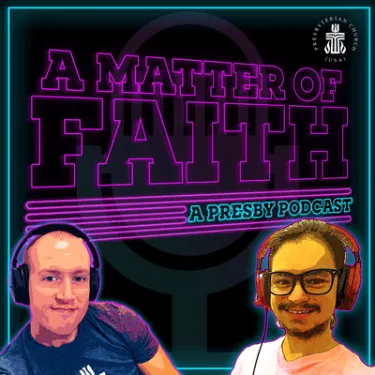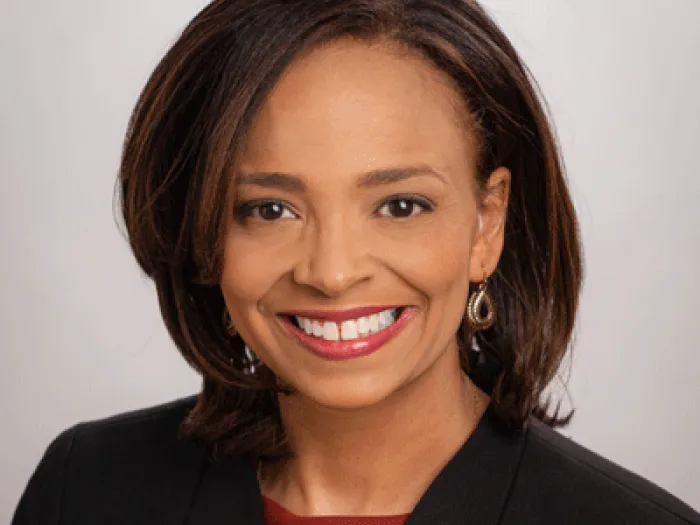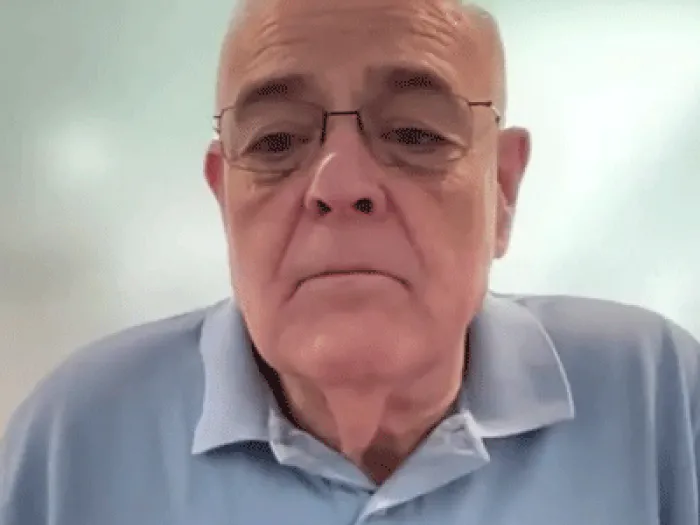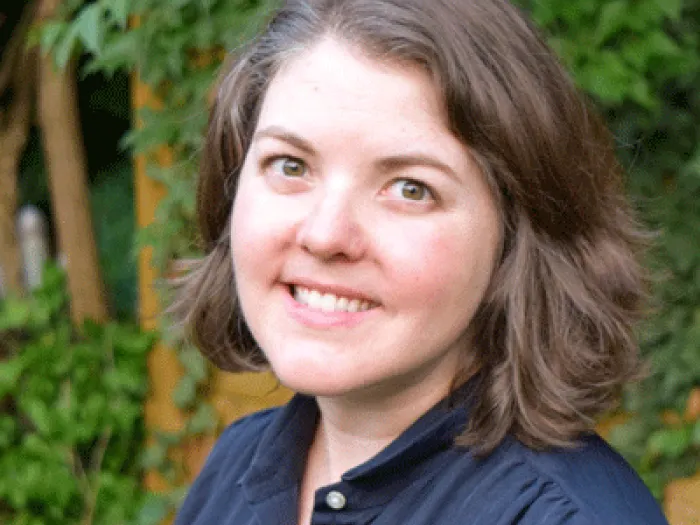‘A Matter of Faith: A Presby Podcast’ guest explores advancing our values through our investments
Author Andrea Longton is the most recent guest of hosts Simon Doong and the Rev. Lee Catoe


LOUISVILLE — Whether we or our faith communities are investing a few dollars or millions, we can, with a little outside help and some of our own insights, advance our values through those investments.
On the most recent edition of “A Matter of Faith: A Presby Podcast,” Andrea Longton, a Chartered Financial Analyst and the author of “The Social Justice Investor: Advance Your Values While Building Wealth, Whether a Few Dollars or Millions,” which will be published April 23 by Broadleaf Books, offered up ways to get started investing with faith and values at the top of mind.
“The simple answer is, just take the first step, and then take the next step and the next step,” she told hosts Simon Doong and the Rev. Lee Catoe. “I can tell you as someone who has a professional background in finance and also manages my own family’s social justice investment portfolio, I have credentials and I was still really intimidated whenever I went to talk to my financial advisor, who I have known for years and really love.”

That’s why she decided to write the book, 4½ years in the making — to break down the process for getting started, whether it’s “calling a financial advisor or creating your own portfolio online, going the DIY route,” she said. The book breaks it down into three lanes: as a DIY investor, someone working with a financial advisor, or as a 401k investor. “What’s the next step? What’s the step after that, and the step after that? At the end, you’re looking at a portfolio of social justice investments, or you’re working your way there,” she said. “That’s what I would encourage everyone to do is to just take the next step.”
While traditional investing may focus on profit maximization, social justice investing can occur “whenever you’re pursuing sustainable financial earnings so that it’s enough money. You and your family are taken care of,” Longton said. “The second return objective is evidence of social justice change.” As a person of faith — Longton attends a PC(USA) congregation in a rural community — “I feel comfortable that my money that I use in my family and professionally reflects that relationship that I have with God, which is, how am I loving God?” and “how do I love my neighbor as myself?” she said. “Money shifts away from being a goal to being a tool.”
Money isn’t “inherently evil,” she said, but “it’s how people use money that creates these societal tensions that we have. … In the U.S., we live in a financial system where some people have access to these mainstream financial systems where you go to the bank and get a mortgage. But many people — because of the color of their skin, their gender or how they identify themselves in any number of ways — don’t have access in the same way to the financial resources any person needs to reach their full potential.”
“If I can use my money to drive capital and resources and opportunity and privileges to my neighbor in the same way I would want to have and the same way I would want my kids to have,” she said, “that I feel reflects my faith background as a Christian.”
Doong, who works in the PC(USA)’s Office of Faith-Based Investing and Shareholder Engagement, said he was recently contacted by a person in a Presbyterian congregation that’s selling its manse. This person asked Doong for any guidance for investing the proceeds in a socially responsible way.
In response, Longton said someone had pointed her to a sermon by John Wesley on the use of money. “One of the points he made was, do we own this wealth, or are we here to be stewards of these assets? I love that the church is thinking about who owns this money and how are we being good stewards,” Longton said. People and faith communities have many choices on where their money spends the night, she said. One consideration is, “How does your bank or credit union perform when it comes to investing in the community? Your money doesn’t just sit there. It’s working and going out into the community.”
That can be the local community, “financing home ownership and small business,” she said, or “on Wall Street,” where it can be invested “in stocks and bonds and derivatives that don’t match your values at all.” Longton said this website can help people learn more about how their financial institution invests the money they’ve deposited.
Given this example of a church selling its manse, the church can decide whether to give away the proceeds, absorb the money into its budget, or, perhaps, invest it in reducing the racial wealth gap and in gender equity. “You can decide there’s a really great community loan fund in my region that lends money to Black- and brown-owned small businesses and also home ownership opportunities for families of color,” Longton said.
While people may feel defensive about their wealth and find it a difficult topic to discuss, those conversations can be worthwhile, she said. “If you’re putting a gift from God in a box and saying, ‘Somebody else manage it,’ but you’re not keeping an eye on it, then that doesn’t make you the best steward of the blessings that you have,” Longton said. “This is what I would do personally: Acknowledge how did we get this wealth, and then pivot and talk about what we do moving forward. What world are we creating, and how do we adjust that if it’s not based on or reflects our values? We have to recognize and acknowledge our past, but I like to pivot pretty quickly into, how do we start moving into the future?”

“It’s the tension between faith and finance, between money and mission,” Doong said. “It’s a delicate gray space, but I think it’s an important one.”
“It’s a tension we’re seeing across the board,” said Longton, who’s worked 10 years in nonprofit development finance and five years in for-profit development finance. “The tension between mission and budget is there, even in nonprofits. I think it’s a healthy tension between what do we need and how can we love our neighbor as ourself?”
There is help online, Longton noted. One is the Invest Your Values website. “We have at our fingertips the resources we need to interrogate,” she said. “If this is a blessing and a resource and a gift we have to manage, then we have to step up and manage it.”
Longton took a moment to praise the work done by the PC(USA)’s Mission Responsibility Through Investment.
“As a Presbyterian, I’m really proud of the work that you do on the investment and corporate engagement side,” she told Doong, “because I’ve seen it firsthand. I really appreciate your work.”
“We’ve got to put our money where our mouth is,” Catoe said to wrap up their time together. “Invest well!”
New episodes of “A Matter of Faith: A Presby Podcast” drop every Thursday. Listen to previous installments here.
You may freely reuse and distribute this article in its entirety for non-commercial purposes in any medium. Please include author attribution, photography credits, and a link to the original article. This work is licensed under a Creative Commons Attribution-NonCommercial-NoDeratives 4.0 International License.




